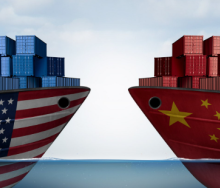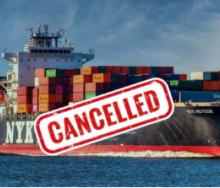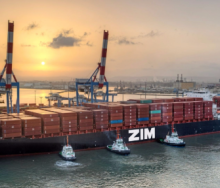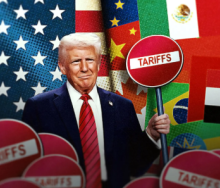The United States has gone ahead and implemented a retaliatory tariff of 104% on Chinese goods after Beijing refused to repeal a retaliation tariff of 34% following an initial US tariff implementation of 34%.
Reuters and Associated Press reporters said the move came in response to China's recent imposition of a 34% tariff on US goods, which itself was a response to earlier US tariffs on Chinese products.
The sequence of events began on April 2, when President Donald Trump announced a 34% tariff on Chinese imports, aiming to address longstanding trade imbalances and concerns over intellectual property rights.
In retaliation, China declared on April 4 that it would impose a matching 34% tariff on all US imports, effective from 10 April.
President Trump responded to China's actions by threatening an additional 50% tariff if China did not withdraw its retaliatory measures by April 8.
When the government of Xi Jinping didn’t comply, the US proceeded to enforce a cumulative 104% tariff on Chinese goods, starting on April 9.
The tariff spat has led to significant volatility in global financial markets.
Major Asian stock indices, including Japan's Nikkei and Hong Kong's Hang Seng, experienced sharp declines. The S&P 500 in the US also faced substantial losses, shedding $5.8 trillion in value over four days.
Consequently, investors have turned to safe-haven assets, resulting in appreciations of the yen and Swiss franc, while oil prices have plummeted nearly 4% due to concerns over reduced Chinese demand.
The Chinese yuan has depreciated to near its weakest level since 2007, indicating potential further currency declines as a countermeasure. Treasury markets have also been affected, with yields on 10-year and 30-year notes rising sharply, reflecting fears of foreign capital flight.
Analysts warn that these aggressive tariff hikes could push the global economy into recession, with JP Morgan noting that the move could equate to a $400 billion tax hike on the US economy.
Other countries have also been impacted by the US's sweeping tariff measures. Nations such as Madagascar, Vietnam and South Korea are facing tariffs ranging from 25% to 50% on their exports to the US.
For instance, South Korea has announced a KRW3 trillion ($2 billion) emergency funding package to support its auto industry, heavily impacted by the new 25% US tariffs on cars and parts.
The rapid escalation of tariffs between the US and China marks a significant intensification of trade tensions between the world's two largest economies. The initial US tariff of 34% on Chinese imports was a substantial increase from previous rates, which varied across different products but were generally much lower. The subsequent retaliatory measures have raised concerns about the potential for a full-scale trade war and its implications for the global economy. Stakeholders worldwide are closely monitoring developments as both nations navigate this complex economic stand-off.













